VI Employment Congress 2023

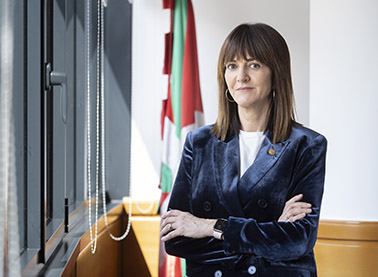
In the Basque Country, we have been working in recent years to build a new employment policy space for new times. We realised from the start, when we were still bound by the restrictions that allowed us to resume our lives during the pandemic, that we could not just limit ourselves to coping with emergencies. That the recipes of the past could not even cope with these emergencies, but we had to explore new paths to enable us to protect people and businesses. A political response from the productive fabric and the commitment of the social stakeholders that has allowed a faster recovery from the deepest crisis we have ever known, that managed to get over a million people into work and with rights, a figure unimaginable at the time, even less so then in the middle of it all a war broke out at the gates of Europe with a direct effect on economic activity and on households.
But we also realised we had to aim high. We had to fix our gaze on the horizon of a world that is changing even faster than we can see in our everyday lives. And we decided to launch this long view with a participatory, collaborative process that has taken essential time out at each of the three Employment Congresses in this parliament to mark the steps and fit together the pieces to make a different way of approaching employment policy possible.
These congresses, and a series of events of different kinds run by the Department of Work and Employment, Lanbide and Osalan have given rise to guidelines to ensure that quality, the best working conditions, emerges as the common trait shared by every initiative taken. From this came an initial road map, the 2030 Basque Employment Strategy, which was then transformed into legislative commitments in the 2023 Strategic Plan. Hence the profound process of change in public service with the Lanbide Hobetzen Plan for Improvement, which is going ahead while continuing to deal with people and businesses. The employment white paper, a basic, comprehensive and tested guide to making the right decisions in this field. And now the first Basque Employment Act, which will finally be passed in 2023, with the aim of making a radical, collaborative change setting out to cater for the needs of businesses and working people.
This act did not come out of nowhere. It will come after an overhaul of the income guarantee and inclusion system, thanks to the new regulations agreed by consensus and passed in 2022, and the Lanbide modernisation process. However, it is also based on the experience of a large number of schemes piloting new ways of including those who have had the greatest difficulty finding a decent job, adjusting supply and demand for qualifications to employment trends and transitions. A gradual roll-out of policies supported by European RRF funds, but also by a determined allocation of the department's own resources, both in Lanbide programmes and in the employment directorate itself, responsible for strategic planning, which has multiplied its budget for these purposes by ten.
Just as it does not come out of nowhere, the act is not completed simply by being passed. On the contrary, it intensifies the process by requiring the completion of the organisational overhaul of Lanbide; by requiring improved coordination of agents in the Basque employment network; by requiring the digitalisation and standardisation of shared management tools; by requiring the effective, efficient execution of the range of employment services; and by requiring a response to a new right of citizens, that of employment guidance and activation through personalised employment plans.
All these requirements are driven by a model of constant innovation and systematic, independent assessment of employment and inclusion policy, a form of accountability demanding constant adaptation to all the needs that emerge. And this calls for a new impetus. If the recent congresses have fed into the strategies and reforms under way, this 6th Basque Employment Congress must serve to go on getting it right in new policy to meet the challenges of the competitive, cohesive Basque Country we are seeking in this new world that is being born.
Idoia Mendia Cueva
Second Deputy First Minister and Minister of Labour and Employment
 This 6th Employment Congress continues the dynamic of discussion of public employment policy initiated at the start of this legislature, providing all stakeholders, both public and private, with a meeting place that sets out to help to improve the tools and instruments we deploy to meet the needs of people seeking work and employers looking for people.
This 6th Employment Congress continues the dynamic of discussion of public employment policy initiated at the start of this legislature, providing all stakeholders, both public and private, with a meeting place that sets out to help to improve the tools and instruments we deploy to meet the needs of people seeking work and employers looking for people.
The Congress will last two consecutive days, in a morning session with 12 public events divided into 5 talks, 5 round tables and the opening and closing events, with experts of recognised standing in the field of employment, training and innovation.
The FIRST DAY will be devoted to "skills and training for decent employment", as part of the European Year of Skills. Regarding this topic, we will have a first keynote talk about the possibilities and limits in structuring a range of training in a changing world. We will have the chance to hear about the system brought in with the new vocational training act, its relationship with the employment system and the prospects for its implementation in the Basque autonomous region. We will hear about evidence-based strategies and methods to train people who are outside the job market. And to end the day, different ground-breaking experiences aimed at people to be dealt with on a priority basis will be presented.
The SECOND DAY will focus on "innovation in public employment policy", beginning with a talk on the change happening in public employment services, to centre their attention on providing services for job seekers and companies seeking employees. This will be followed by a round table focusing on different experiences of improvement and innovation in the various services that make up the portfolio of active employment policies: guidance, mediation, self-employment and advice for employers. We will then have a talk about technological and digital innovation in public employment policy, to adapt to the challenge of the technological transition, and we will find out how it is used in a range of tools as part of active employment policies: single employment history, repository of offers, profiling tool and employment and training observatory.
To complete this second day, and the Congress, we will have a round table to discuss conclusions, with the participation of the social stakeholders making up the Basque table for social dialogue. They will summarise and assess the two days of the Congress, as well as explaining how they see the challenges outstanding in public employment policy to meet new needs as they arise, to which end we are already constructing alternatives.
KEYNOTE ADDRESS
How to train for an unknown future
Within the framework of the European Year of Skills 2023: do qualification, retraining and requalification guarantee decent employment in a society undergoing constant productive and social change?
Knowledge and skills are necessary conditions to find work, but is it possible or even valid for the training available to adapt strictly to businesses' demand for professional profiles?
Considering that companies are immersed in and subject to market trends, innovations and the necessary product-service differentiation demanded by the dynamics of economic competition, how are public policy on training and the vocational and employment training system to respond to the accelerating obsolescence of vocational qualifications? And, especially true in the context of digital/technological and climate/energy change and in the light of the demographic imperative in terms of replacement and managing age in the workforce?
From an ethical and moral point of view, must careers guidance and therefore vocational training be aimed exclusively at meeting the demand for employees that creates jobs? What about free choice of career or with other vocational interests when these do not match job opportunities?
TALK
The Vocational Training Act and the Employment Act: implementation and complementarity
The structuring and complementarity in the systems of vocational training (educational) and training on the job (employment). State of regulatory development or implementation of new legislation in the field of vocational training and employment. Effects or interactions between vocational training legislation and the training for employment on offer (now training in work under the new Employment Act).
ROUND TABLE
Vocational skills and decent employment
On the basis of the thoughts in the previous talk, the aim is firstly to encourage debate from the standpoint of the Basque Vocational Training and Employment System about the practical impact of the new legislation, and secondly to undertake an analysis of the match between vocational qualifications and skills within the European framework, particularly as they affect training that constantly adapts to employment demand.
The round table will also discuss the usefulness or effectiveness of training processes in finding, keeping or improving jobs, with case studies of successful training and employment programmes for medium and highly-qualified people, for low-qualified people, for people in employment and within the university sphere.
TALK
Complementarity between policies on the labour market and social investment to train vulnerable groups
Presenting research analysing and proposing transferable, scalable guidelines based on innovative experiences with good practice in strategies, methodologies and programmes of action for people to be dealt with on a priority basis: marginalised or at risk of exclusion, disabled, young, over 50, low-qualified, women, long-term unemployed and so on.
ROUND TABLE
Innovative programmes and proven success aimed at people to be dealt with on a priority basis
Presenting actual experiences of successful intervention specialising in the different population groups who are a priority.
TALK
Innovation in Public Employment Services from the point of view of demand (people) and supply (services to companies)
A dual focus, firstly going into the "client company" perspective, giving visibility to and fostering the orientation of public employment services towards companies' different needs, beyond the classical conception and attempting to overcome barriers to a new relational paradigm. Secondly, going into new models of attention to job seekers at Public Employment Services, as citizens with rights and as clients, and at the same time jointly responsible for their own path to employment or better employment.
ROUND TABLE
Good practice and innovation in the range of public employment services
The aim is to show good practices in public employment services in the way they provide their range of employment services, with the exception of training as this service is dealt with specifically in the first day of the congress.
TALK
Technological and digital innovation in the management and implementation of employment policy
AI, the ethical algorithm, the digitalisation and automation of processes and services, personalisation. Ethical and rights issues in applying technological advances to employment services and policy.
ROUND TABLE
Common tools of the employment system to optimise the results and integration of networks of collaboration
Innovative experiences in preparing and using the different tools and supporting devices for optimal provision of the range of employment services.
ROUND TABLE
Conclusions of the VI Employment Congress
Social and institutional stakeholders' assessment of the contributions by speakers and round table participants and their view of the advances in employment policy and outstanding challenges.
09/11/2023: “Skills and qualifications for decent employment”
8:30 h.: Reception and accreditation
9:00 - 9:30 h.: OPENING CEREMONY
- Juan Mari Aburto. Mayor of Bilbao.
- Teresa Laespada. Regional Deputy of Employment, Social Inclusion and Equality.
- Idoia Mendia. Second Deputy First Minister and Minister of Labour and Employment. Basque Government.
9:30 - 10:15 h.: KEYNOTE ADDRESS. How to train for an unknown future
- José Antonio Marina. Philosopher, writer and educationalist.
10:15 - 10:45 h.: TALK. The Vocational Training Act and the Employment Act: implementation and complementarity
- Clara Sanz. General Secretary of Vocational Training of the Ministry of Education and Vocational Training.
10:45 - 11:15 h.: COFFEE BREAK
11:15 - 12:30 h.: ROUND TABLE. Vocational skills and decent employment
- Jorge Arévalo. Deputy Minister of Vocational Training in the Education Department. Basque Government.
- Juan Carlos Ibarrola. Director of Vocational Training for Employment at LANBIDE.
- Patricia Pérez-Gómez. Head of the team responsible for the European Social Fund at the European Commission Directorate-General for Employment and Social Policy.
- Montse Maritxalar. Vice-rector for postgraduate and continuing training at the UPV-EHU.
Moderator: Sara de la Rica. Director of the ISEAK foundation and professor of economics at the UPV-EHU.
12:30 - 13:00 h.: TALK. Complementarity between policies on the labour market and social investment to train vulnerable groups
- María Laffaire. Researcher at KSNET Knowledge Sharing Network.
13:00 - 14:30 h.: ROUND TABLE. Innovative programmes and proven success aimed at people to be dealt with on a priority basis
- Mariel Quera. Coordinator of the support, guidance and assistance service at SARTU-TALDEA.
- Pablo Núñez. General manager of KL KATEALEGAIA.
- Begoña Etxebarria. Director of NOVIAS SALCEDO FOUNDATION.
- Izaskun Barbero.Head of innovation and running employment and charity projects at CARITAS: “Sendotu Aldiberean” experiment with people at risk of exclusion.
- Fernando Lallana. Consultant and expert in HR and entrepreneurship. Director of the +50EMPRENDE AWARDS.
Moderator: Sara Buesa. Director of benefits and inclusion at LANBIDE.
10/11/2023: “Innovation in public employment policies”
9:00 - 9:30 h.: TALK. Innovation in Public Employment Services from the point of view of demand (people) and supply (services to companies)
- Juan José Torres. General Director of the Public Employment Service of the Catalan Government’s Business and Work Department.
9:30 - 11:00h.: ROUND TABLE. Good practice and innovation in the range of public employment services
- Guidance for employment. Ana Belén García. Deputy director general of employment development in the Madrid region.
- Driving and modernising active employment policies: the COE network of centres. María Antonia Agudo. Deputy Director-General of Institutional Relations and Legal Support at SEPE, the State Public Employment Service.
- Advice on self-employment and entrepreneurship. Begoña López. Head of SEPEPA, the Asturias public employment service.
- Advice for people, businesses and employers. Alicia Gálvez. Head of the area supporting businesses at the Aragonese employment institute.
Moderator: Francisco Pedraza. General Director of LANBIDE.
11:00 - 11:30 h.: COFFEE BREAK
11:30 - 12:00 h.: TALK. Geoeconomics, Employment and the New Social Contract
- Manuel Muñiz. International rector at IE University and lecturer in International Relations
12:00 - 13:15 h.: ROUND TABLE. Common tools of the employment system to optimise the results and integration of networks of collaboration
- Single employment history. Jesus Mari Ordóñez. Head of the employability service at LANBIDE.
- SENDA@ & LEO. Big Data and AI at the service of people. Federico Muñiz. Director-General of Statistics and Information at SEPE, the State Public Employment Service.
- Profiling tool. Cesar Martín. Head of the computing and IT service and the ongoing job market search system (Observatorio Argos) of the Andalusian Employment Service.
- Employment and Training Observatory. Luis Prieto. Head of OBECAN, Canary Islands Employment Observatory.
Moderator: Javier Ramos. Adviser on institutional relations in the Basque Government Department of Work and Employment.
13:15 - 14:15 h.: ROUND TABLE. Conclusions of the VI Employment Congress
- Alfonso Gurpegui. Deputy Minister of Employment and Inclusion in the Basque Government's Department of Work and Employment.
- Elena Pérez. Vice-minister of Work and Social Security in the Basque Government.
- Carlos Pereda. Head of Training at CONFEBASK.
- Arantxa Niño. Secretary for Employment and Training at the UGT trade union.
- Arantza Martínez. Secretary for Employment and Professional Training at the CC.OO trade union confederation.
Moderator: Tomás Arrieta. President of the Basque Industrial Relations Council.
14:15 - 14:30 h.: CLOWNCLUSIONS
- Virginia Imaz. Oihulari Klown Theatre Group.
14:30 h.: CLOSING CEREMONY
- Alfonso Gurpegui. Deputy Minister of Employment and Inclusion in the Basque Government's Department of Work and Employment.
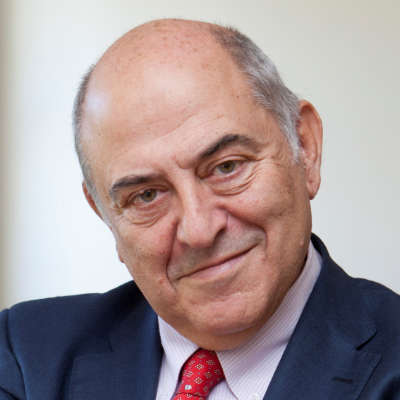
José Antonio Marina
Philosopher, writer and educationalist.

Clara Sanz
General Secretary of Vocational Training of the Ministry of Education and Vocational Training.
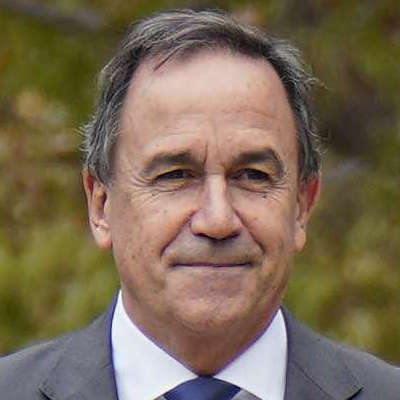
Jorge Arévalo
Deputy Minister of Vocational Training in the Education Department. Basque Government.

Juan Carlos Ibarrola
Director of Vocational Training for Employment at LANBIDE.

Patricia Pérez-Gómez
Head of the team responsible for the European Social Fund at the European Commission Directorate-General for Employment and Social Policy.

Montse Maritxalar
Vice-rector for postgraduate and continuing training at the UPV-EHU.
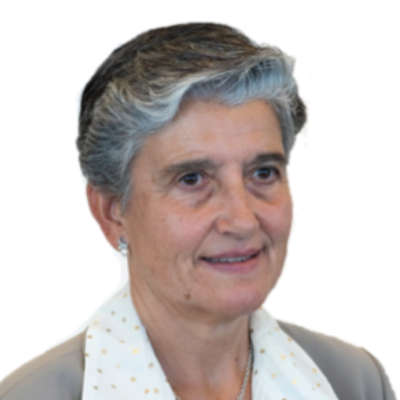
Sara de la Rica
Director of the ISEAK foundation and professor of economics at the UPV-EHU.

María Laffaire
Researcher at KSNET Knowledge Sharing Network.

Mariel Quera
Coordinator of the support, guidance and assistance service at SARTU-TALDEA.

Gemma Scalise
Doctor of Sociology and Assistant Lecturer in Economic Sociology in the Department of Sociology and Social Research at the Milan-Bicocca University.

Izaskun Rekalde
Directora de la Asociación Zubietxe.

Pablo Núñez
General manager of KL KATEALEGAIA.

Begoña Etxebarria
Director of NOVIAS SALCEDO FOUNDATION.

Izaskun Barbero
Head of innovation and running employment and charity projects at CARITAS: “Sendotu Aldiberean” experiment with people at risk of exclusion.
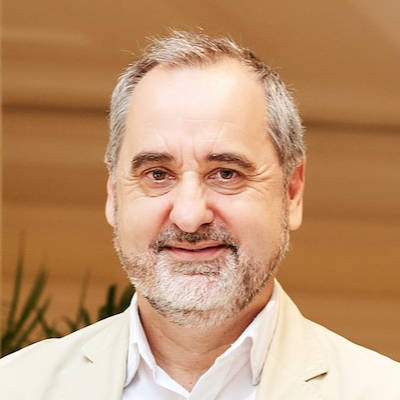
Fernando Lallana
Consultant and expert in HR and entrepreneurship. Director of the +50EMPRENDE AWARDS.
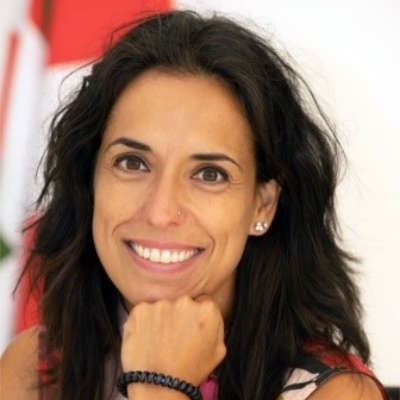
Sara Buesa
Director of benefits and inclusion at LANBIDE.
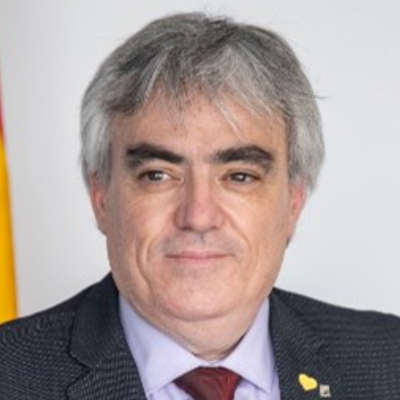
Juan José Torres
General Director of the Public Employment Service of the Catalan Government’s Business and Work Department.

Ana Belén García
Deputy director-general of employment development offices in the Madrid region.

María Antonia Agudo
Deputy Director-General of Institutional Relations and Legal Support at SEPE, the State Public Employment Service.

Begoña López
Head of SEPEPA, the Asturias public employment service.

Pilar Varela
Head of SEPEPA, the Asturias public employment service.

Alicia Gálvez
Head of the area supporting businesses at the Aragonese employment institute.
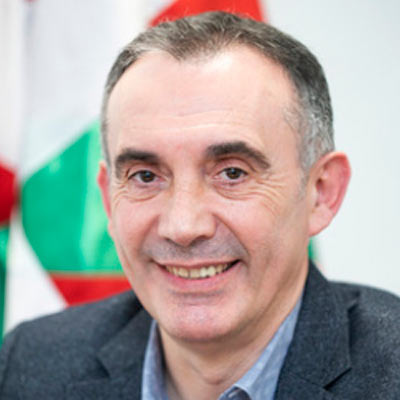
Francisco Pedraza
General Director of LANBIDE.
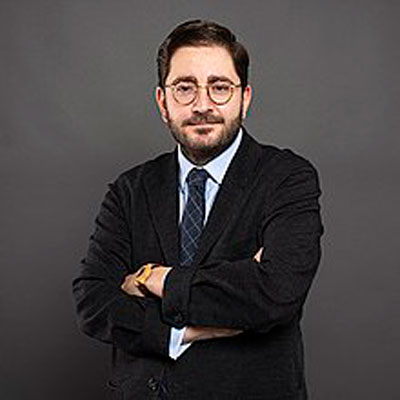
Manuel Muñiz
International rector at IE University in Madrid and lecturer in International Relations.

Jesús Mari Ordóñez
Head of the employability service at LANBIDE.
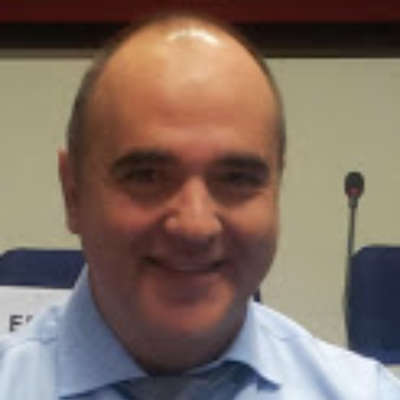
Federico Muñiz
Director-General of Statistics and Information at SEPE, the State Public Employment Service.
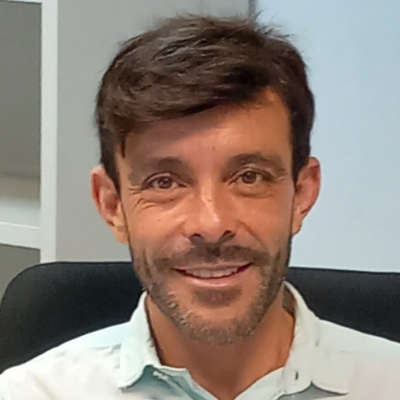
César Martín
Head of the computing and IT service and the ongoing job market search system (Observatorio Argos) of the Andalusian Employment Service.

Luis Prieto
Head of OBECAN, Canary Islands Employment Observatory.

Antidio Martínez de Lizarrondo
Head of the planning, assessment and quality section of the Government of Navarra's employment and training observatory.

Javier Ramos
Adviser on institutional relations in the Basque Government Department of Work and Employment.

Alfonso Gurpegui
Deputy Minister of Employment and Inclusion in the Basque Government's Department of Work and Employment.

Elena Pérez
Vice-minister of Work and Social Security in the Basque Government.
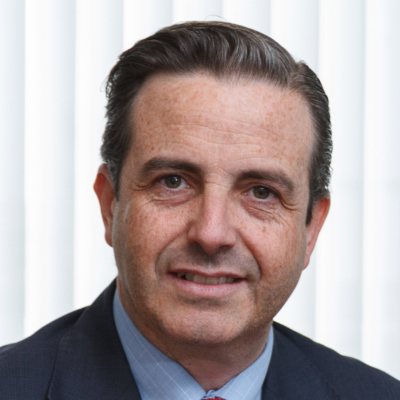
Carlos Pereda
Head of Training at CONFEBASK.

Arantxa Niño
Secretary for Employment and Training at the UGT trade union.

Arantza Martínez
Secretary for Employment and Professional Training at the CC.OO trade union confederation.
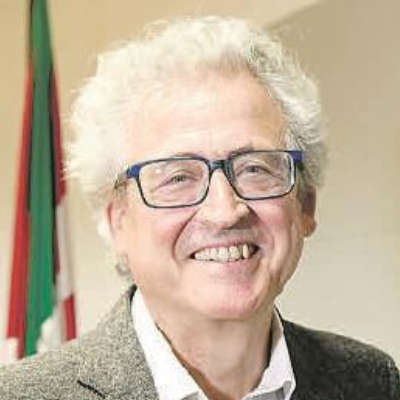
Tomás Arrieta
President of the Basque Industrial Relations Council.
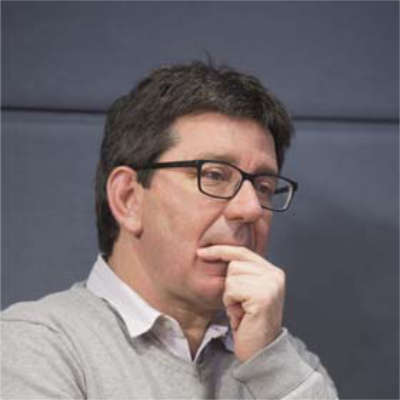
Joseba Zalakain
Director of the Eguía Careaga Foundation’s SIIS since 1996 and director of the centre since 2007.

Fernando Consuegra Revuelta
Lecturer at the University of Deusto and General Coordinator of Sartu Taldea.

Sara de la Rica Goiricelaya
Professor of Economics at the University of the Basque Country and Director of the ISEAK Foundation.

María Saiz Santos
Lecturer at University of the Basque Country (UPV/EHU) and President of the Basque Entrepreneurship Observatory (EEB-OVE).
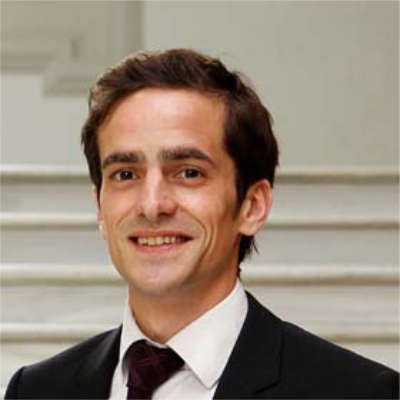
Iñigo Calvo Sotomayor
Lecturer and researcher at the University of Deusto- Deusto Business School.

José Javier Ramos
Advisor to the Department of Labour and Employment for the restructuring of Lanbide.

Fernando Fantova Azcoaga
Independent consultant in the fields of social policy, management and intervention.

Mª José Aranguren
Director General of Orkestra-Basque Institute of Competitiveness and Professor of Economics at the University of Deusto.

Iñigo Arteche Hernández
Public sector consultant since 1989 at IKERTALDE Grupo Consultor S.A., Director of the Basque School of Retailing.


Organised by the Basque government work and employment department, the 6th Employment Congress is to be held on 9th and 10th November at the Palacio Euskalduna in Bilbao.
Right on the estuary, the Palacio Euskalduna is located in the heart of Bilbao, just minutes from the city's international airport and extremely well connected to major land, rail and maritime routes. It can also be reached on foot from most of the hotels in the city.
HOW TO GET HERE
On foot: See maps
By tram: Euskalduna stop / Web
By bus: City (26-56-62) and intercity Bilbao / Web Bilbobus - Web Bizkaibus services
By metro: San Mamés station / Web
By car: Own car park with capacity for 475 vehicles.
Organisational Secretariat:

e-mail: congresodeempleo-te@euskadi.eus
Telephone: (+34) 946 123 007
The V Employment Congress will be held on the 27th and 28th of October at the Kursaal Conference Centre in Donostia / San Sebastian.
The Kursaal Conference Centre is located opposite Zurriola beach, in the Gros district, near the mouth of the Urumea River and is only a five-minute walk from the old quarters. It is linked to the city centre by the Zurriola Bridge, also known as the Kursaal Bridge.
If you come to the Congress by car, the Kursaal has its own car park with direct access to the Congress Hall. There are also two public car parks in the immediate vicinity, less than a fiveminute walk away. As for getting around the city, you won’t need to take a car or bus, as you can reach the city centre easily and comfortably on foot.
https://www.kursaal.eus/en/kursaal-congress-centre/how-to-get-here/
